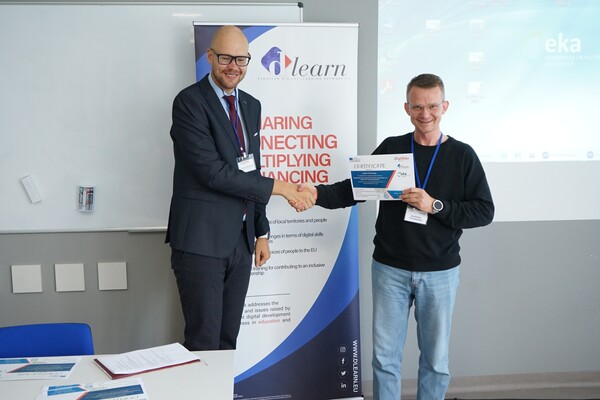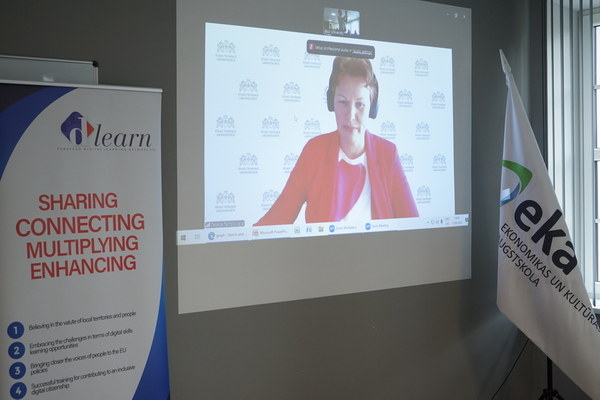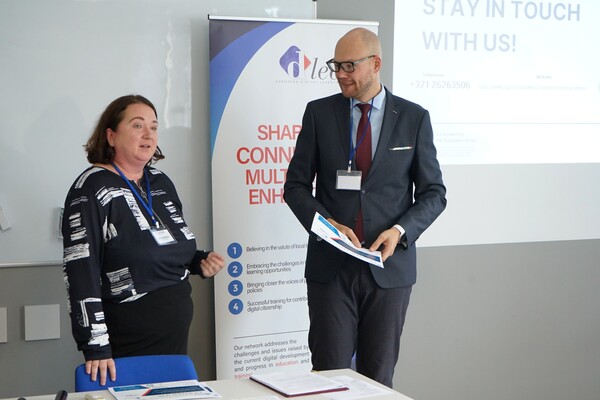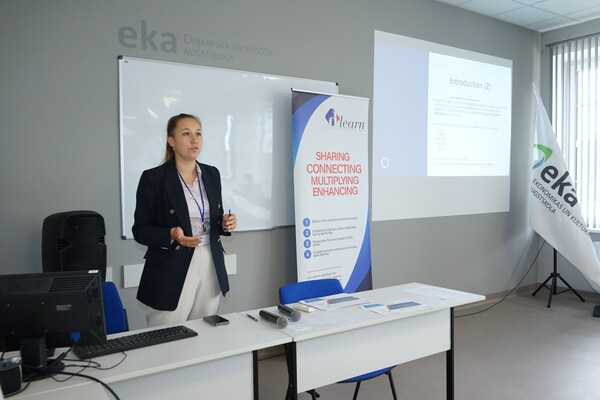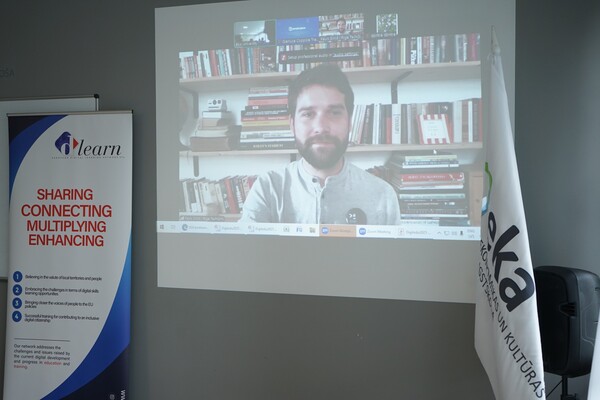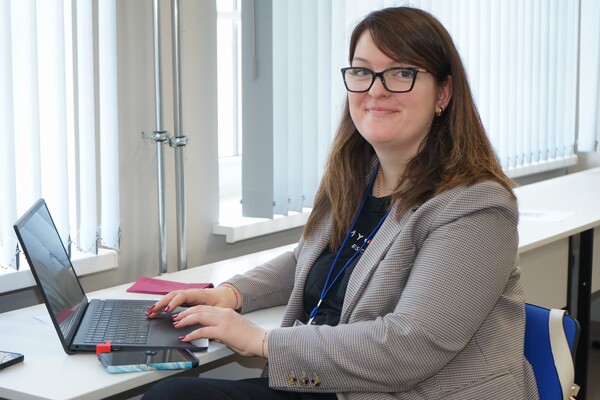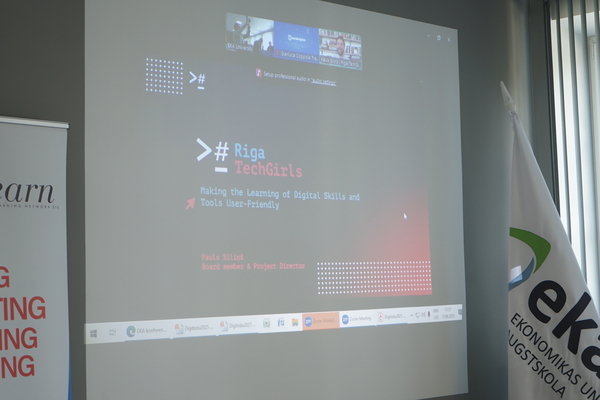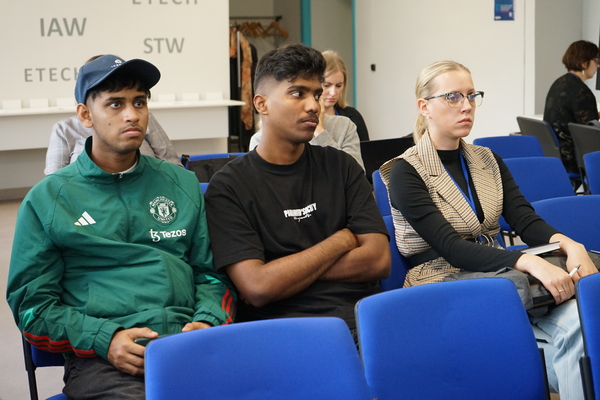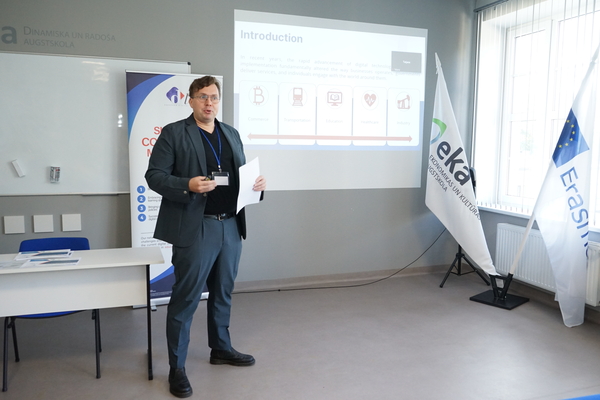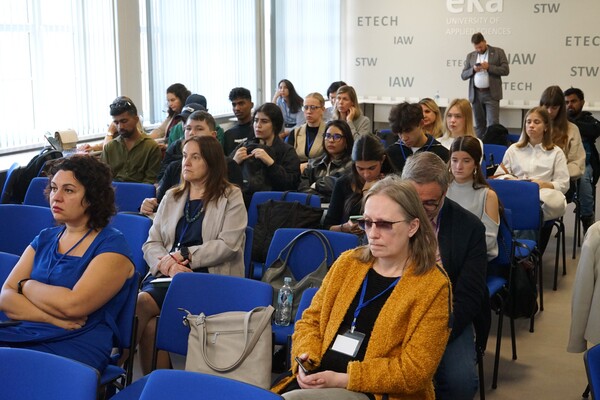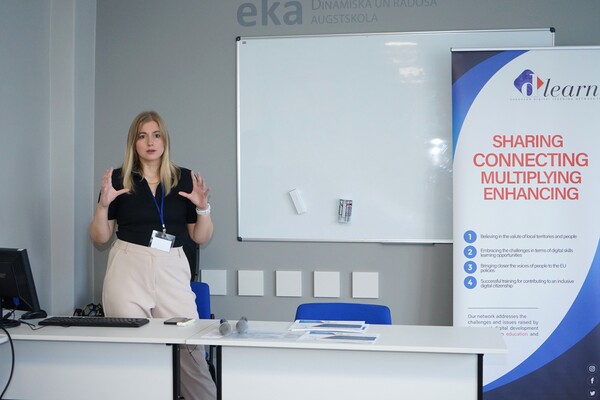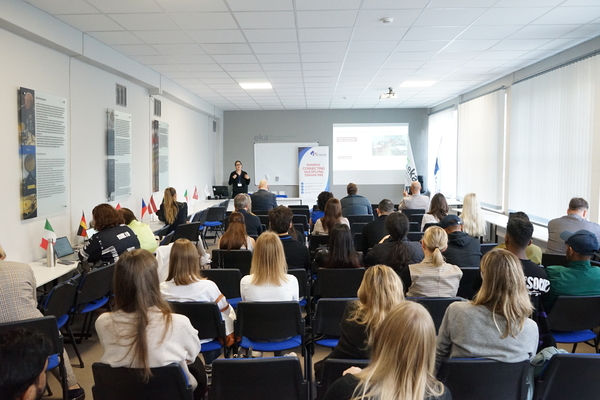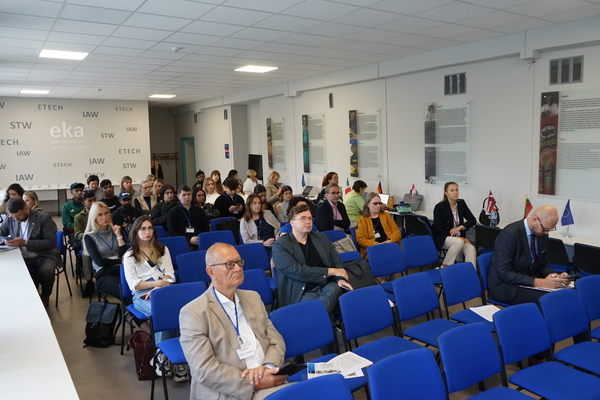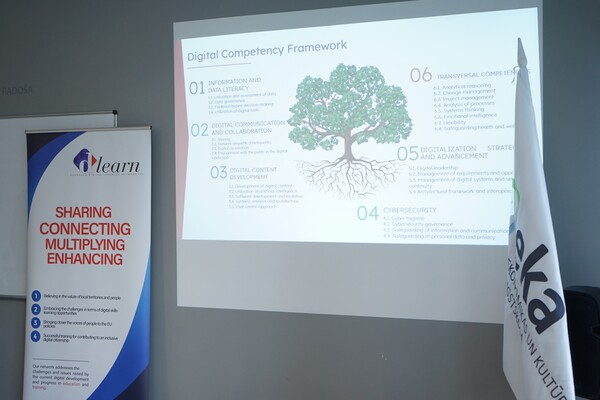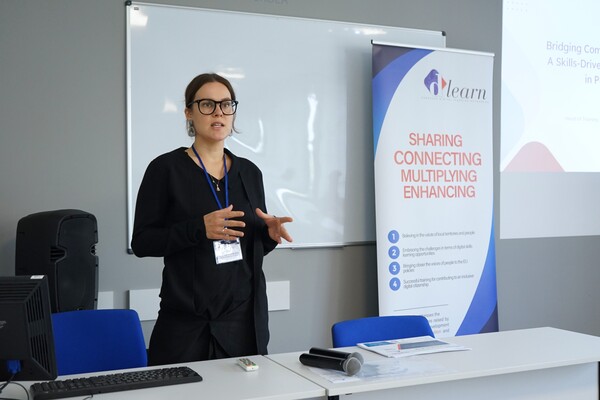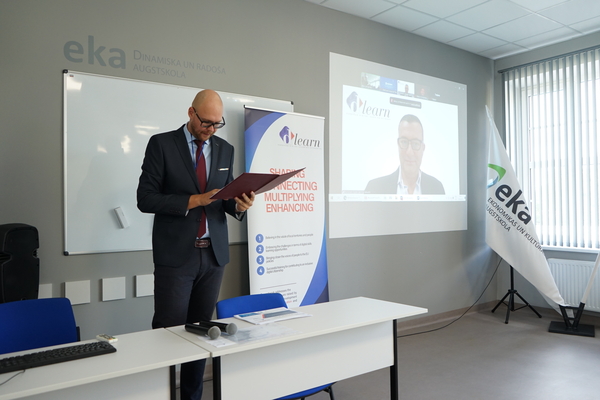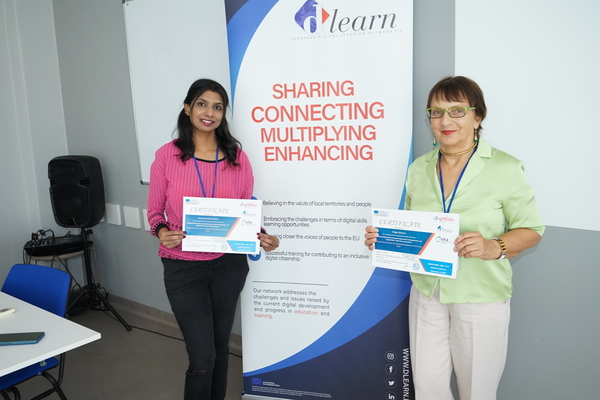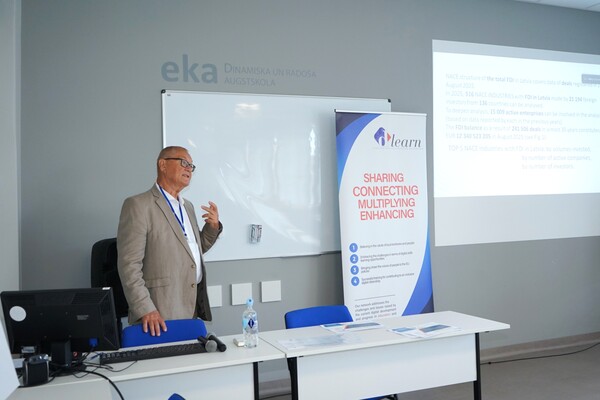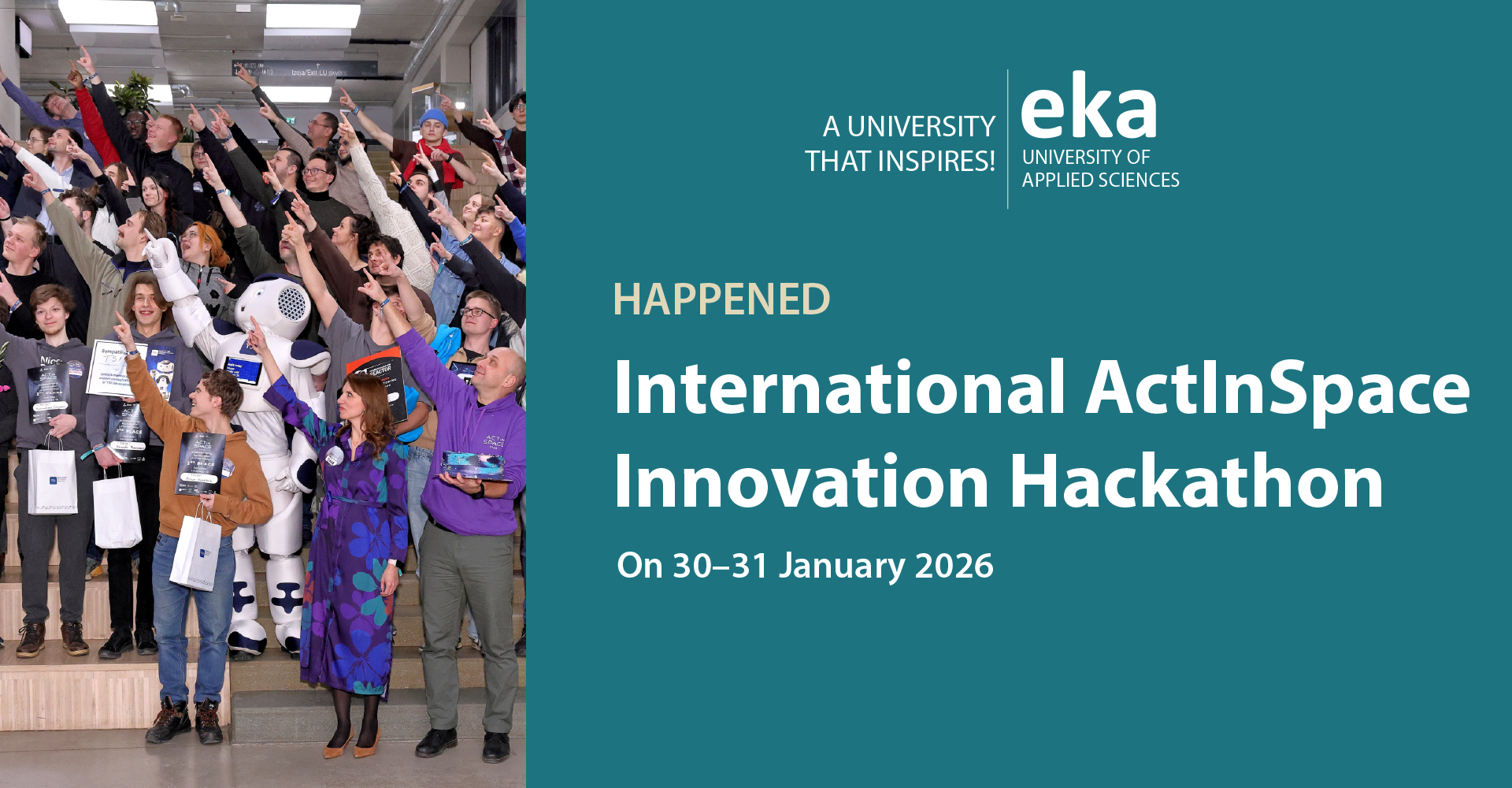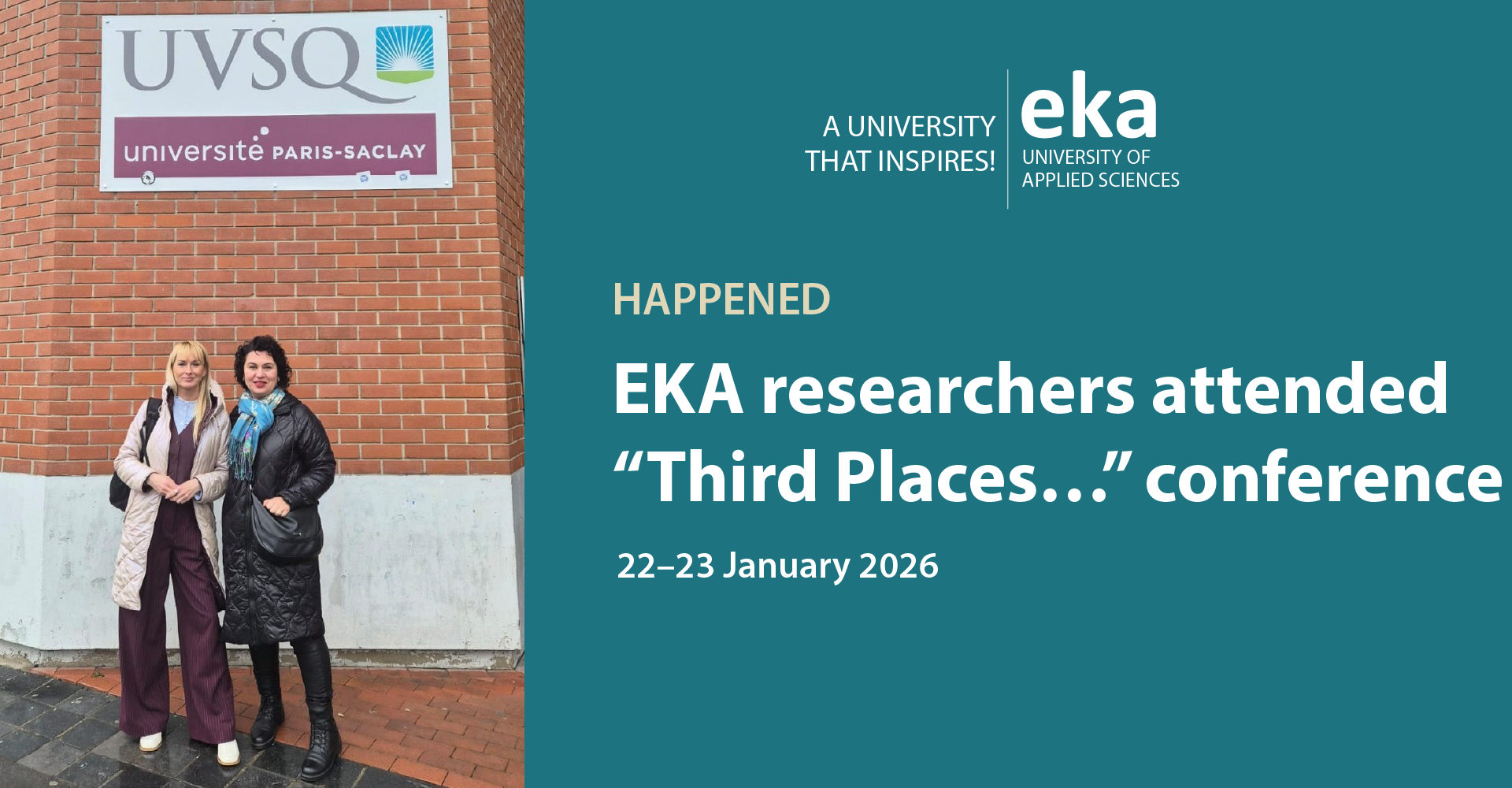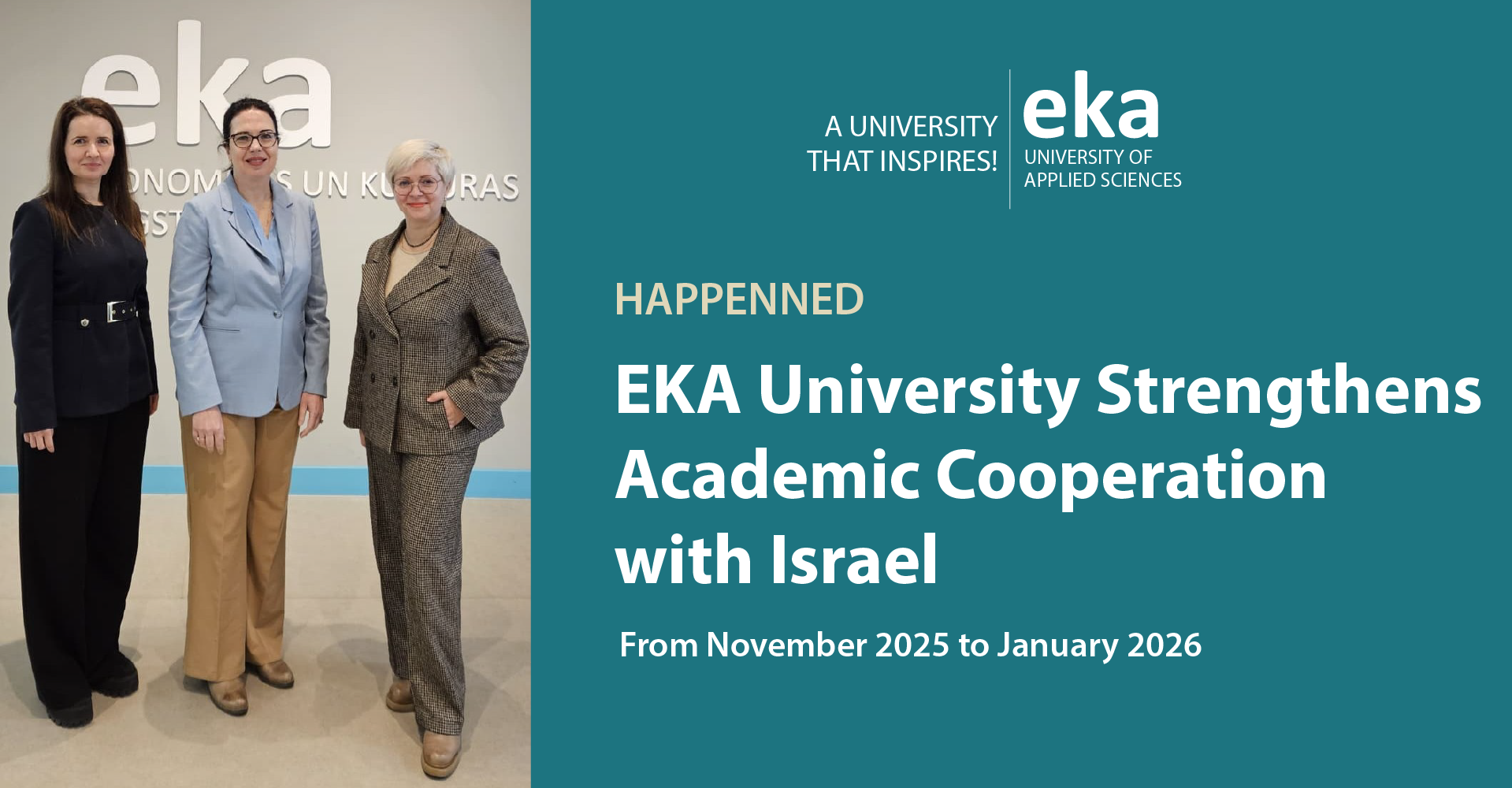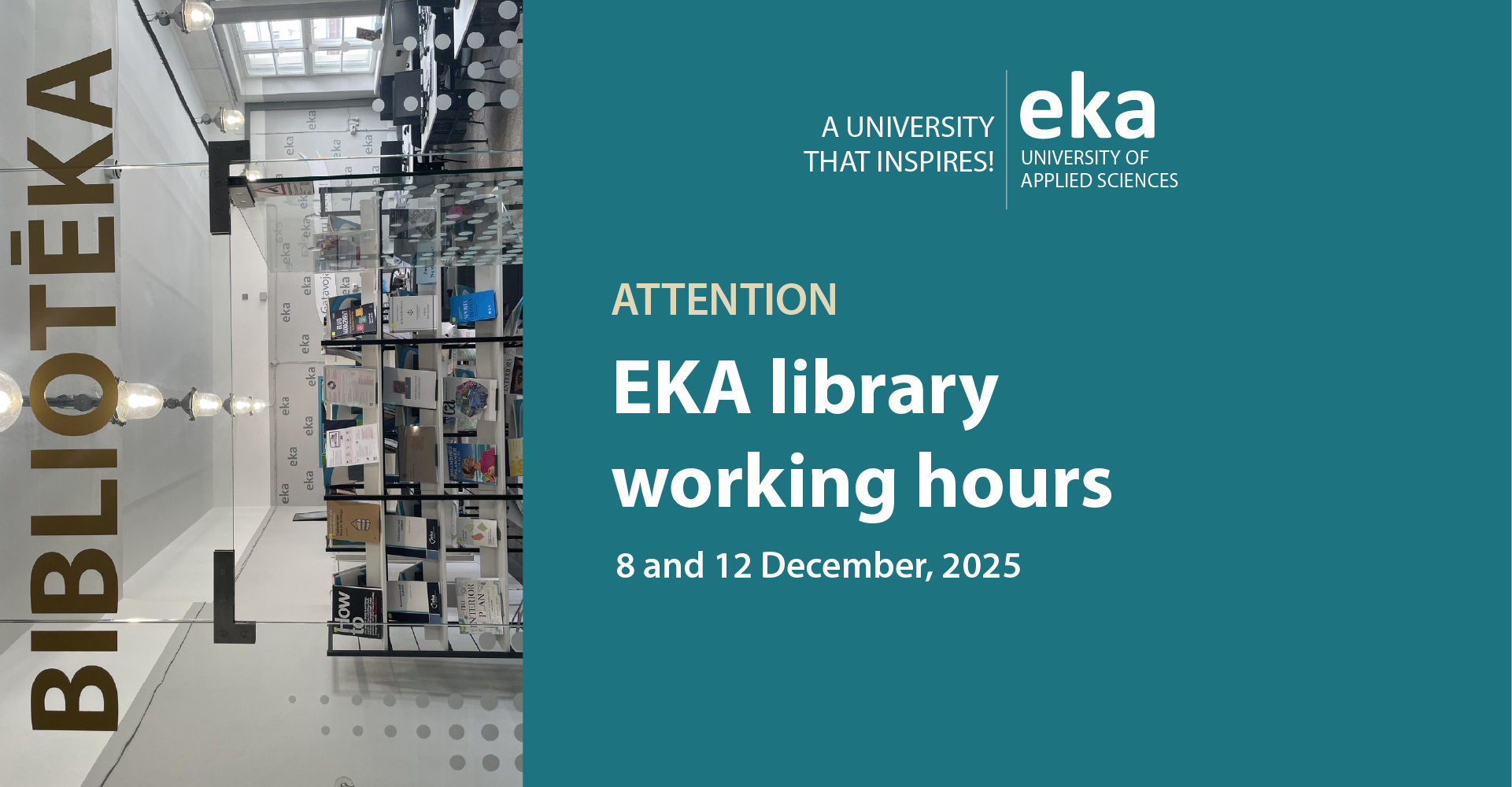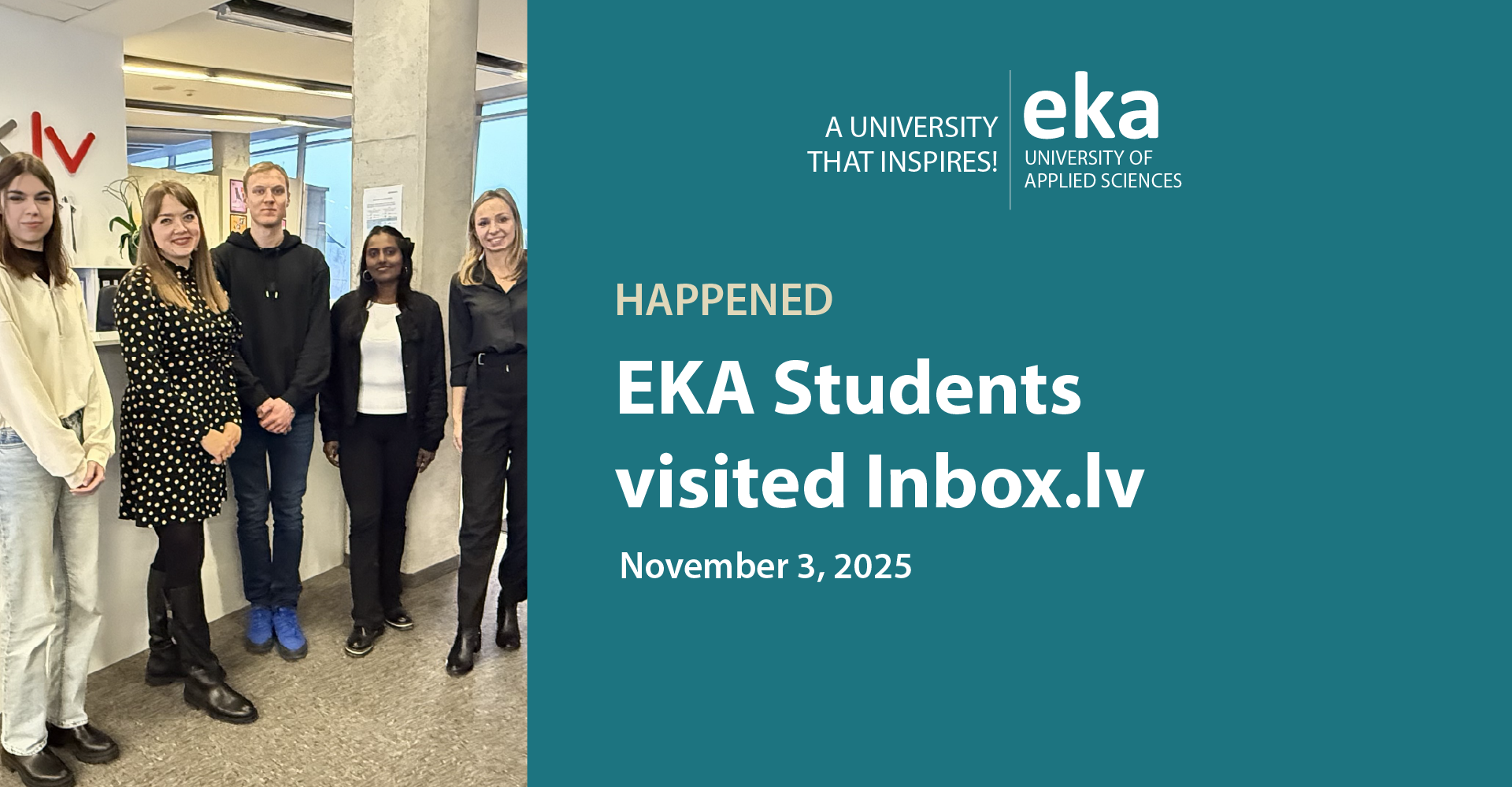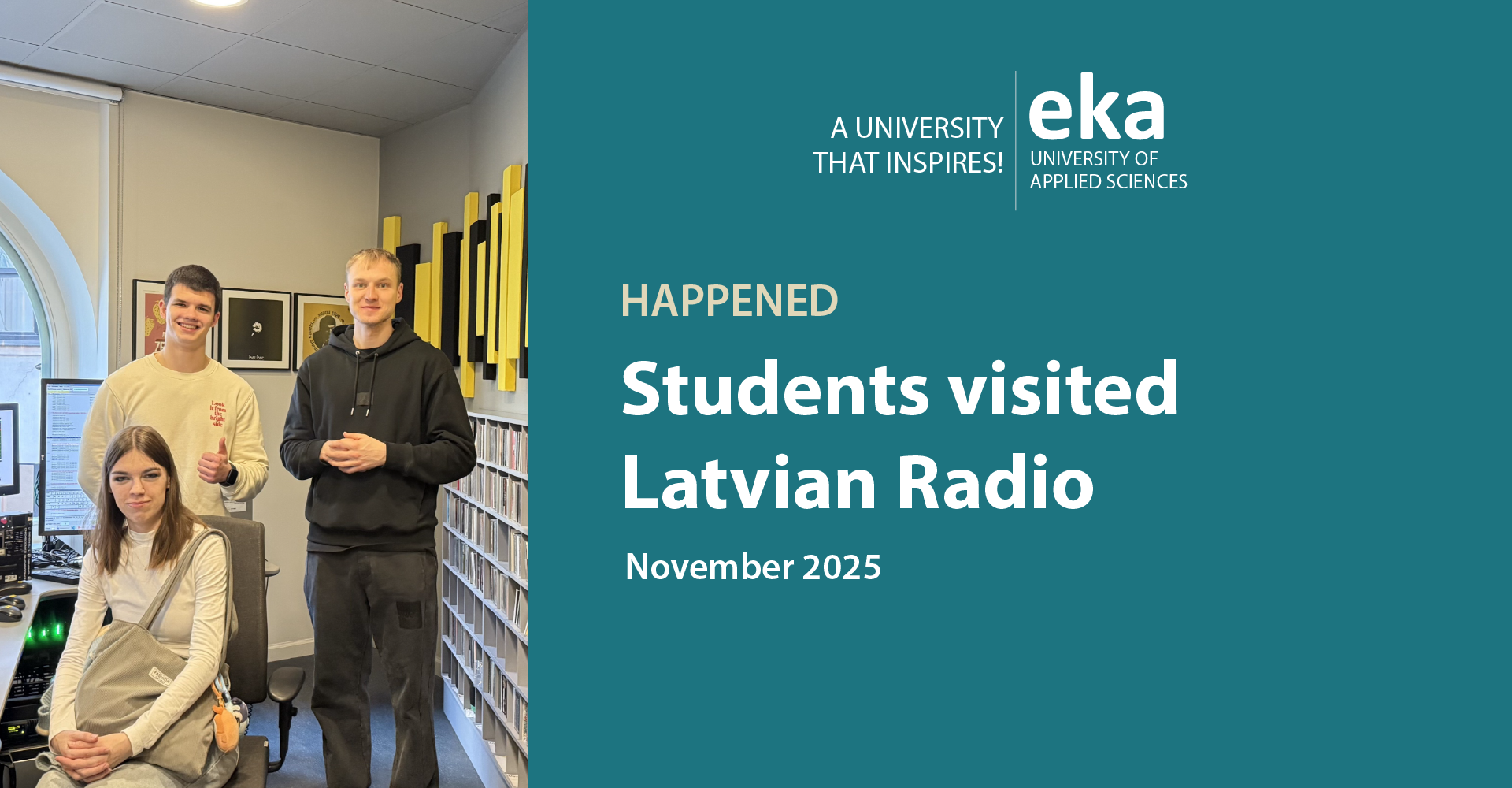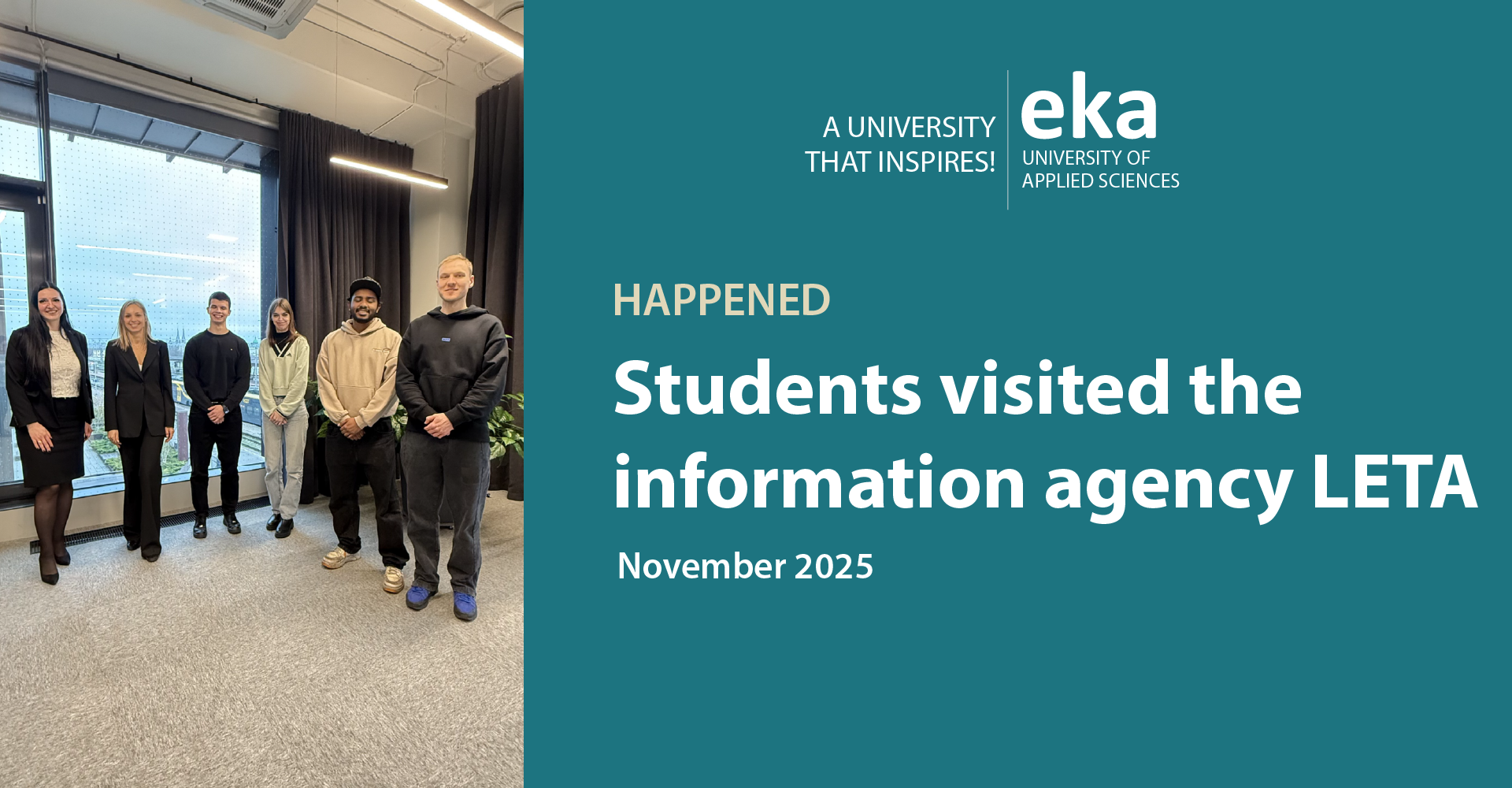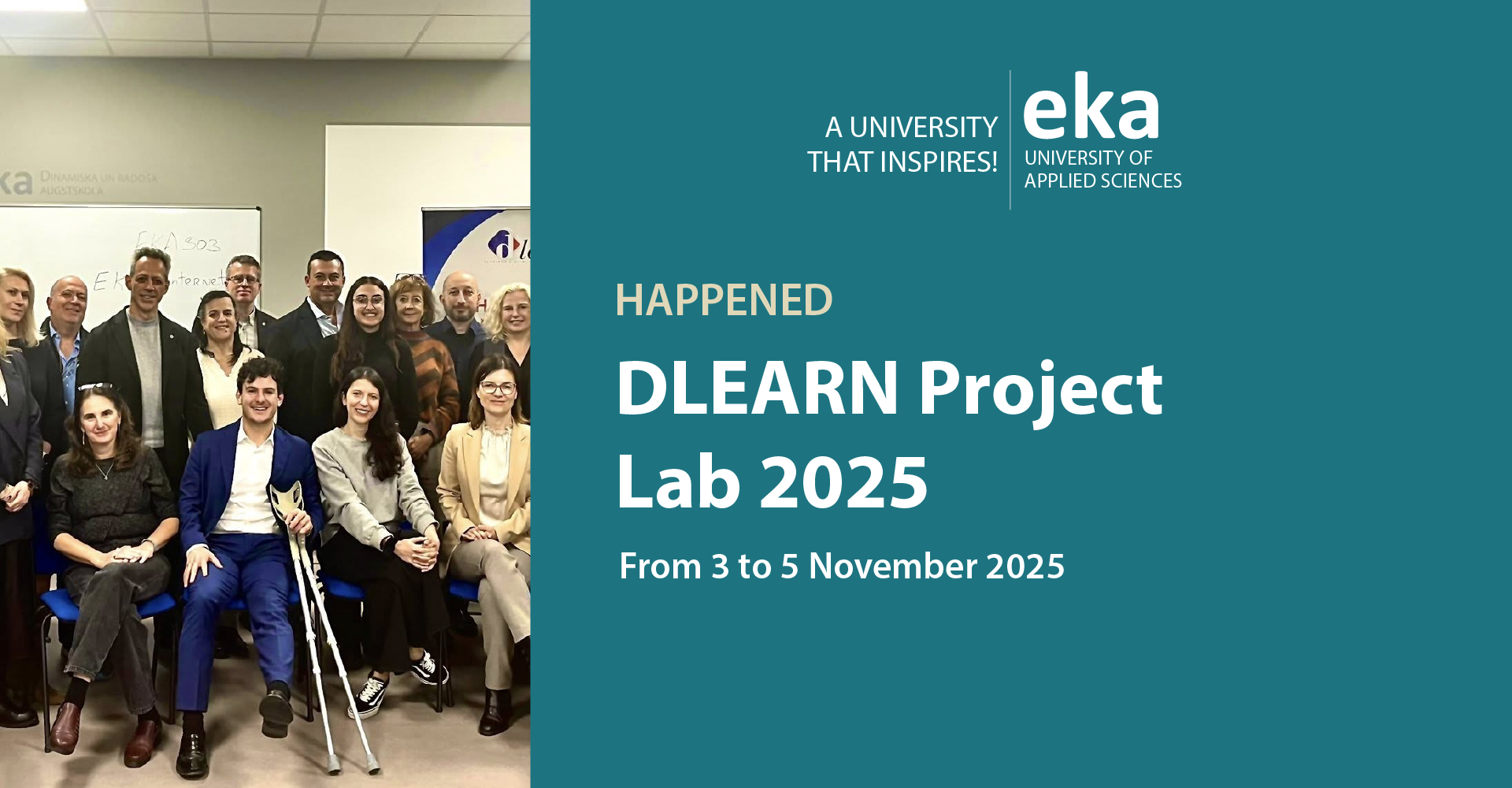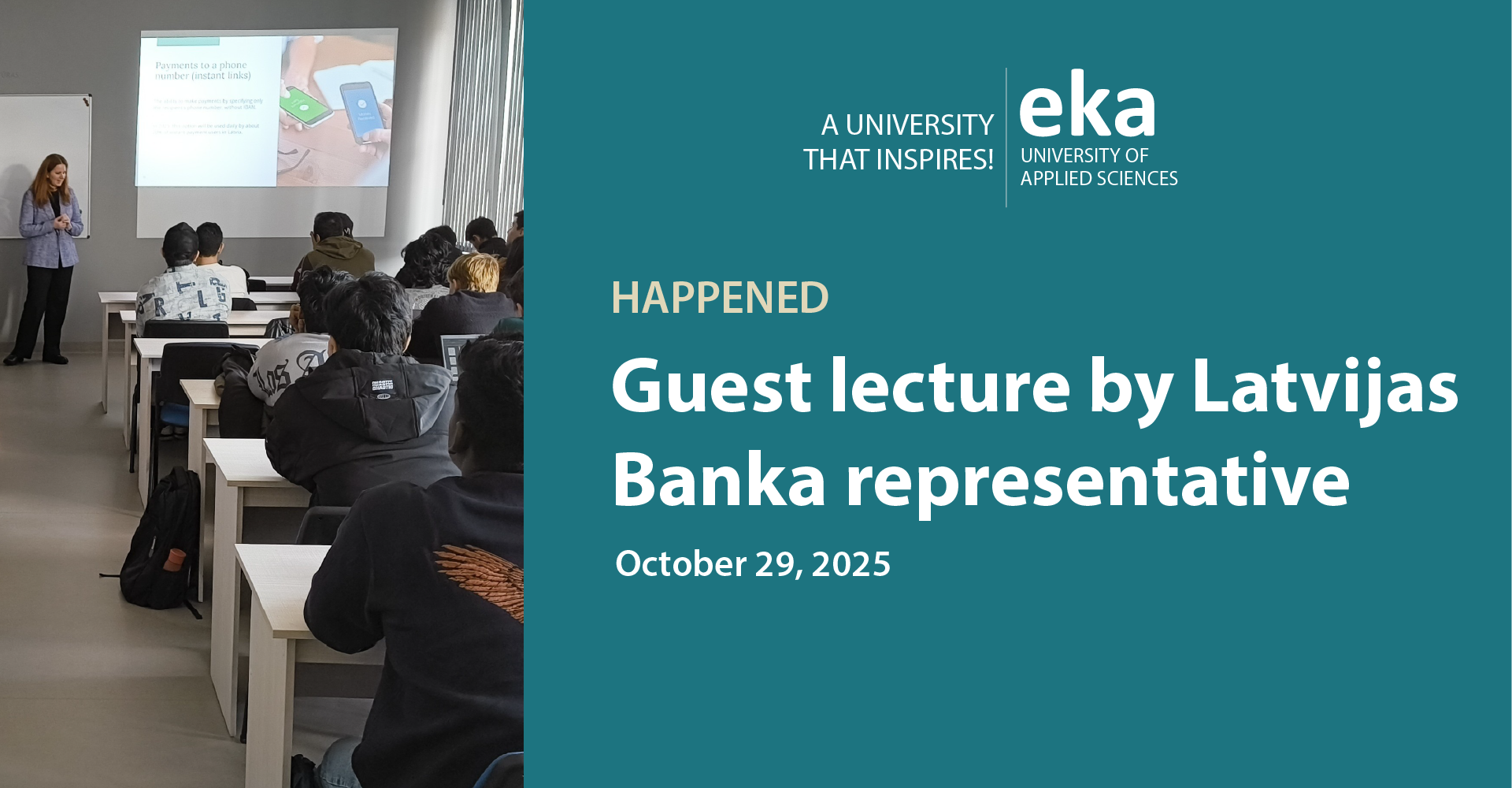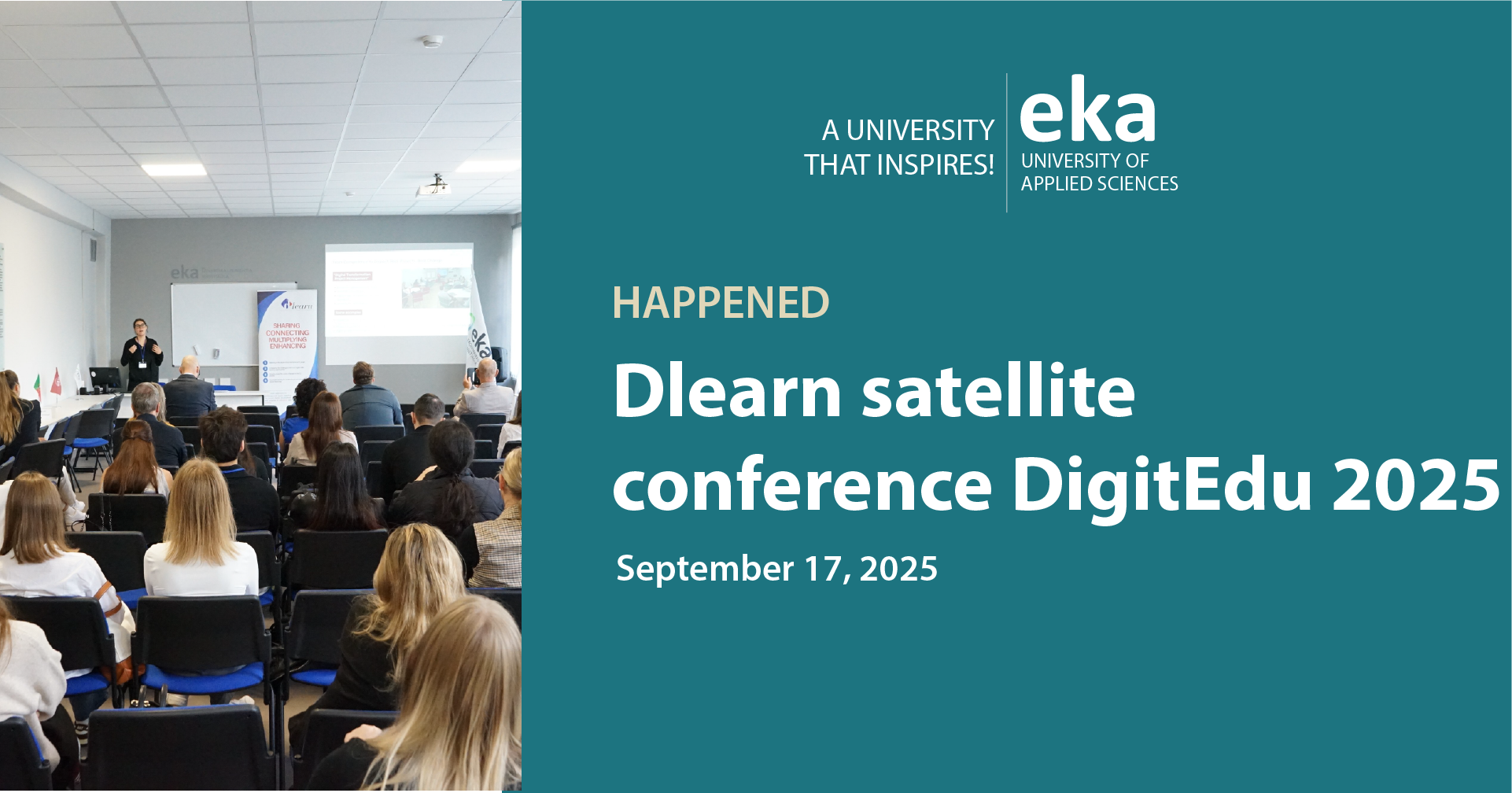
Dlearn satellite conference DigitEdu 2025 “Bridging Digital Gaps: Empowering Learners through Green and Digital Skills”, September 17, 2025.
The Dlearn (https://dlearn.eu/) satellite conference DigitEdu 2025 “Bridging Digital Gaps: Empowering Learners through Green and Digital Skills” organised by EKA University of Applied Sciences took place at the EKA premises and also online, gathering more than 50 listeners. The conference was attended by 14 speakers from 13 universities and institutions representing Latvia, Lithuania, Poland, Germany and Italy.
The conference was divided into two main sessions: “Strengthening Digital Skills” and “Green Skills and Digital Transformation for Sustainability”. We are thrilled to share the highlights and express gratitude to all speakers, participants, and listeners for making this event a success.
Conference Highlights:
Keynote:
Gianluca Coppola (Italy), President of the European Digital Learning Network ETS, opened with a provocative talk “Artificial Intelligence Doesn’t Reason, It Calculates. The Real Risk Lies in How It Changes Our Way of Knowing.”
Session 1: Bridging Digital Skills Gaps and Empowering Learners:
Collaborative Online International Learning Project in Practice: A Student Perspective – Marcin Komańda & Katarzyna Łukaniszyn-Domaszewska (Poland) shared practical insights into international student collaboration.
Skills-Driven Approach to Digitalization in Public Administration – Kristīne Aleksejeva (Latvia) explored competence frameworks in governance.
Are We Future-Ready? Supporting Companies in Closing Digital Gaps – Līga Ignate (Latvia) highlighted the role of EDIHs in digital transformation.
Making Digital Skills Learning User-Friendly – Pauls Siliņš (Latvia) showcased inclusive training strategies.
Digital Skills Gaps Between Generations – Elvis Dibanins & Ilona Lejniece (EKA, Latvia) discussed intergenerational divides.
STEM Centres Online Platforms in Latvia – Anastasija Bikova (Germany) & Jelena Zascerinska (Latvia) introduced innovative learning resources.
Socio-Technical Approaches to Online Violence Mitigation – Ieva Brence (Latvia) linked digital tools with user competencies.
Barriers in University Digital Transformation – Nataļja Verina & Gita Actiņa (EKA, Latvia) analyzed organizational and personal challenges.
Designing Impactful Digital Learning in Higher Education – Kamilė Kesylė (Lithuania), Jelena Zascerinska (Latvia), Andreas Ahrens (Germany) & Julija Melnikova (Lithuania) presented a structured ADDIE-based design model.
Session 2: Green Skills and Digital Transformation for Sustainability:
The Role of Social Media Influencers in Promoting Sustainability – Regina Veckalne & Tatjana Tambovceva (Latvia) examined digital influence on eco-consciousness.
Virtual Reality for “GREENENTRE4DEAF” Project – Kaspars Šteinbergs (EKA, Latvia) showcased immersive tools for inclusive green education.
Empowering FDI Stakeholders through Green & Digital Skills – Andrejs Limanskis (Latvia) stressed the link between investment and sustainability.
Digitalization as a Driver for Sustainable Development in the Baltic States – Saranya Kanna Baskar (India/Latvia) & Velga Vēvere (Latvia) highlighted regional sustainability strategies.
During the conference, the participants concluded that digital and green skills are becoming an integral part of education and the labor market, and international exchange of experience helps to find new approaches to the development of these skills.
Conference presentations:


